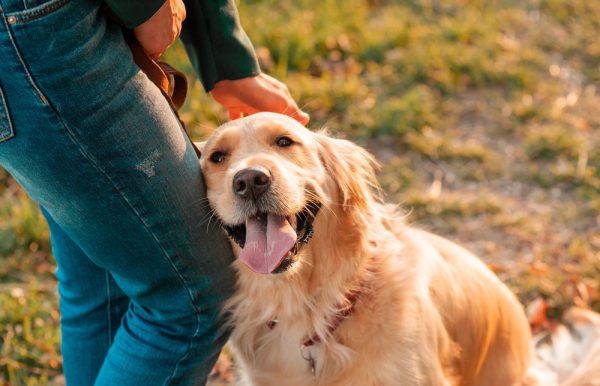Small dogs often have a reputation for being “yappy” and excessive barkers, which can be an annoyance for many people. The Papillon, a toy spaniel breed known for their butterfly-shaped ears, is no exception. However, Papillons do not bark as often as some other dog breeds.
If you are looking to welcome a Papillon home, you are probably wondering about their barking habits. Considering how vocal a certain dog breed is can be important when you are deciding if they are the right dog for you and your lifestyle. This article will tell you everything you need to know.

About Papillons and Their Barking Habits
Papillons are one of the oldest toy dog breeds in the world, with origins dating back to Europe during the 16th century. They are happy and alert dogs with a dainty size, long smooth coat, and playful temperament. They stand at around 8 to 11 inches tall, which makes them the perfect lapdogs suitable for apartment living. Papillons are active throughout their puppy and adult years and enjoy running, playing, and bonding with their owners.
Since Papillons bond so closely with those they love, this breed is prone to separation anxiety. Papillons do not like being left alone for long periods without entertainment. This could cause your Papillon to bark more than usual while you are away from home. Aside from excessive barking, they might display destructive behaviors because of their inability to handle being alone.
Otherwise, most Papillons will bark because they are trying to alert you to something that has got their attention. You may also notice that Papillons bark when you are playing with them or when they are trying to get you to pet them.

Do Papillons Bark a Lot?
Papillons bark a moderate amount, similar to Maltese Poodles and Yorkshire Terriers. They do not bark as excessively as Pomeranians and Chihuahuas. Papillons are a vocal dog breed that communicates through barking or yapping. Their bark is low-pitched and slightly squeaky, typical of other miniature toy dog breeds.
A Papillon’s bark is not as easily heard by surrounding apartments or neighbors as a large dog breed bark would be. However, their bark is still loud enough to be heard by others near open windows or doors. Papillons are naturally alert and lively and may bark regularly during different situations. They generally respond to being pet, passing cars, guests, and mealtimes by barking.
During playtime, some Papillons may bark, whine, and growl as they are playing. It is normal for Papillons to be vocal during activities that excite them, and they express their feelings through barking.
The loudness and duration of their barking will depend on how they are feeling, such as anxious, excited, or stressed. An anxious or stressed Papillon may bark excessively and whine for hours at a time while an excited Papillon has a higher-pitched bark in short bursts.
Why Do Papillons Bark So Much?
There are various reasons Papillons will bark which are similar reasons for many other dog breeds.
- Separation anxiety: Excessive barking, whining, and yapping while you are away common for Papillons suffering from separation anxiety. Separation anxiety leads to Papillons feeling stressed and anxious, and they communicate these unpleasant feelings by barking.
- To get your attention: Papillons are intelligent dogs that can easily put two and two together. Papillons know that by barking, they are likely to get your attention. This can make Papillons bark more than usual because they know the result. However, this can be viewed as undesirable behavior that can be difficult for Papillons to overcome.
- Communication: Dogs communicate with their owners via body language and vocalness. Barking is the primary way that Papillons and many other dog breeds use to communicate.
- Excitedness: Papillons are a happy dog breed that gets excited easily. Excitedness can be a big emotion for this small dog breed who may bark excessively as a result. Excited barking is often accompanied by a wagging tail and jumping behavior, all signs of a happy dog.
- Stress/fear: Papillons can be sensitive dogs that are easily frightened or stressed. They do not respond well to negative emotions and will whine or bark excessively to communicate how they are feeling.
- Boredom: Like most dogs, Papillons can become bored with proper mental and physical stimulation. Excessive barking is a common sign that your Papillon might be bored.


The 5 Tips to Keep Your Papillon’s Barking Under Control
Keep in mind that it is normal for dogs to bark regardless of the amount of training and obedience they have. There is no sure-fire way to stop a Papillon from barking because dogs are naturally vocal animals. However, you can reduce the amount of time they bark by addressing the underlying reasons behind their excessive barking.
Be prepared that Papillons will bark during many everyday situations as a way to communicate to you how they are feeling. No dog breed is completely silent, which is something potential dog owners need to be prepared for.
If you want to keep your Papillon barking under control, here are a few tips to try.
1. Address Separation Anxiety Issues
Separation anxiety usually doesn’t resolve on its own and can be incredibly stressful for dogs to experience. If your Papillon is barking and whining excessively when they are left alone, they might have separation anxiety. Things like independence training, calming supplements, and counterconditioning can help your Papillon overcome their separation issues and reduce their anxious barking.
2. Use Positive Reinforcement

Positive reinforcement is important if you want your Papillon to be more responsive during training and can be used alongside other training methods. Avoid negatively responding to your Papillon—shouting, unnecessary punishments, and false rewards. Instead, try to praise them for good behavior when they stop barking on command, but do not reward them as they are barking to keep them silent.
Your Papillon might associate barking as reward-worthy behavior, so they will continue to do it. Shouting at your Papillon is only going to make them more fearful while giving them treats during undesired behaviors is only going to entice them to do it more.
3. Do Not Encourage Their Barking
If your Papillon is barking to demand your attention, giving them attention while they are barking may encourage the behavior. This type of attention-seeking barking may extend to house guests too.
Rather than ignoring them while they bark for attention, try the proactive training route. For example, reward your dog for more desirable behaviors that get your attention such as sitting in silence. This allows your Papillon to associate sitting, staying quiet, and complying with your commands as a way to get your attention rather than excessive barking.
4. Seek Help From a Professional Canine Behaviorist
Papillons who are not responding well to at-home training methods can benefit from a professional canine behaviorist or a veterinarian. This is a good route to follow if your Papillon has severe separation anxiety or your training methods have failed.
If you need to speak with a vet but can't get to one, head over to PangoVet. It's our online service where you can talk to a vet online and get the advice you need for your pet — all at an affordable price!

5. Keep Them Entertained
A bored Papillon is likely going to bark more than an entertained one. Papillons enjoy various interactive games, toys, chews, and short walks to release energy. Mental and physical stimulation is important if you want to keep your Papillon happy and active. Keeping them pent up all day with nothing to do will only result in undesired behavior like whining and barking.

Final Thoughts
Papillons bark for many different reasons, whether it’s from excitement, separation issues, or attention. They bark a moderate amount, similar to other small dog breeds. Their bark is tolerable for most people and sounds more yappy than whiny. Excessive barking can be a problem for this dog breed, but proper training can help keep it under control.
Featured Image Credit: Wirestock Creators, Shutterstock




















2 Responses
We have 1.5 year old Papillion. An otherwise sweet devoted dog. His one fault is excessive barking at everything. He loves meeting people and will quiet after greeting them, but will not except other dogs. He will bark at people from the road when we are driving the car. Nothing seems to change his behavior. We have not as yet hired a professional trainer due to expense or not sure of making a difference. Any advise will be appreciated.
Hi Donald! Thanks so much for sharing—your Papillon sounds like a wonderful companion. Barking can definitely be a challenge, especially with alert and energetic breeds like Papillons. One helpful strategy is to teach a “quiet” cue by calmly saying the word when he barks, and then rewarding him the moment he pauses, even if it’s just for a second. As he gets the hang of it, you can gradually raise your expectations.
When you're in the car, try redirecting his focus with a favorite toy or treat, or consider blocking his view if he tends to react to things he sees outside. Also, be sure he's getting plenty of physical exercise and mental stimulation—a tired dog is often a much quieter one. You're certainly not alone in this, and with a bit of consistency and patience, you’ll likely see some real progress. 🙂